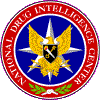ARCHIVED
![]() To Contents
To Previous Page To Next Page
To Publications Page To
Home Page
To Contents
To Previous Page To Next Page
To Publications Page To
Home Page

|
National Drug Intelligence Center New Hampshire Drug Threat Assessment Update April 2002 CocaineCocaine remains a serious threat to New Hampshire. Although TEDS data indicate that treatment admission rates for cocaine abuse have remained stable since 1997--187 in 1997, 187 in 1998, and 188 in 1999--state and local law enforcement officials report that crack cocaine abuse is rising. The high levels of violence associated with crack cocaine distribution and abuse are causing concern among law enforcement officials in the state. Law enforcement reporting and seizure data indicate that powdered cocaine is available throughout New Hampshire and that crack cocaine is becoming increasingly available in certain areas. The New Hampshire Drug Task Force reports that crack availability is increasing in southern New Hampshire, particularly in the cities of Keene, Manchester, Nashua, and Salem. According to Federal-wide Drug Seizure System (FDSS) data, federal law enforcement officials seized 0.4 kilograms of cocaine in FY1999 and 1.1 kilograms in FY2000. In the first quarter of FY2002, powdered cocaine sold for $80 to $100 per gram and was 20 percent to 30 percent pure, according to DEA. Crack cocaine sold for $20 to $50 per rock; purity levels were not available. Local independent Caucasian dealers and abusers are the principal transporters of powdered cocaine into New Hampshire. Crack cocaine is transported into the state by local independent African American dealers and New Hampshire-based Dominican criminal groups and dealers. These dealers, abusers, and criminal groups usually travel to Lowell and Lawrence, Massachusetts, in private vehicles to purchase cocaine from Dominican criminal groups. Increasingly, powdered cocaine is converted to crack within the state because criminal penalties are more stringent for possessing crack cocaine than powdered cocaine. Local independent Caucasian dealers and abusers are the principal powdered cocaine distributors in the state, and independent African American and New Hampshire-based Dominican dealers are the principal crack distributors. Wholesale cocaine distribution in New Hampshire is limited; however, the New Hampshire State Police reports that some Dominican criminal groups have established residences in Manchester and are supplying increasingly larger quantities of cocaine to local dealers. Powdered cocaine and crack cocaine typically are distributed in apartments, bars, and other public places. Crack cocaine also is distributed in abandoned buildings referred to as crack houses.
|
End of page.